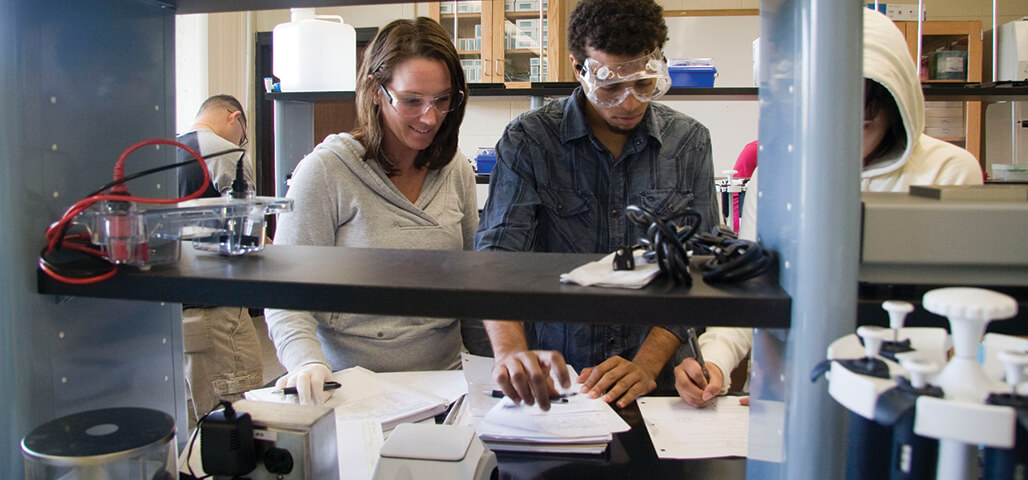
If you like science and want to save thousands of dollars on the cost of a bachelor’s degree before transferring to a four year college or university, a degree in Chemistry, Physics, and Environmental Science from NECC could be for you.
Why Choose NECC?
By completing NECC’s Associate Degree in Chemistry, Physics, and Environmental Science you gain a strong foundation in liberal arts including critical reading, critical thinking, research, and communications, in addition to taking general science and mathematics courses required by many colleges and universities if you are interested in pursuing a bachelor’s degree in physical science or a related field. With this program, you can:
- Choose from three concentrations: Chemistry, Physics, or Environmental Science
- Learn critical thinking skills to solve challenging problems
- Develop your communication skills
- Participate in experiential learning programs, such as travel abroad or internships
- Use NECC resources to help you succeed, including computer labs, tutoring centers, and a career and academic advising center.
Because of NECC
Upon completion of this program, you will be prepared to transfer to complete your bachelor’s degree and pursue many career paths. Employers increasingly seek workers who possess the critical thinking, problem solving, and effective communication skills you will learn. You can:
- Take advantage of MassTransfer Pathways and other transfer agreements to earn your bachelor’s degree, while saving thousands of dollars on the cost of your degree
- Prepare for a career in fields such as research and development, meteorology, education, the environmental sector, and more.
Program Pathway
A pathway is the most efficient sequence of courses semester-to-semester recommended for students to complete their degree. The Chemistry, Physics, and Environmental Science Degree has three pathways:

